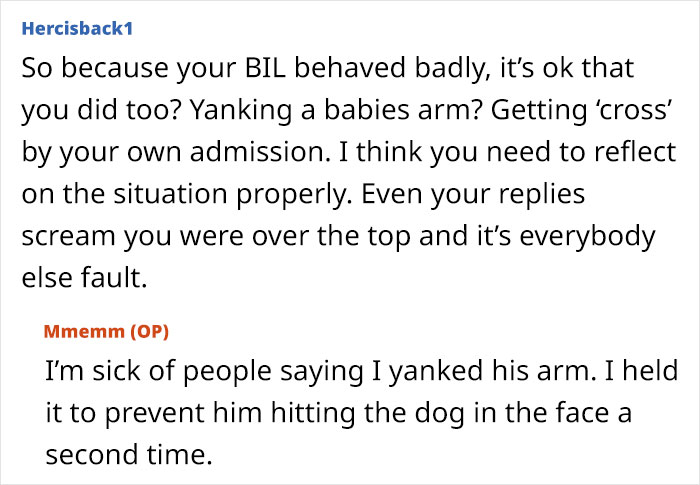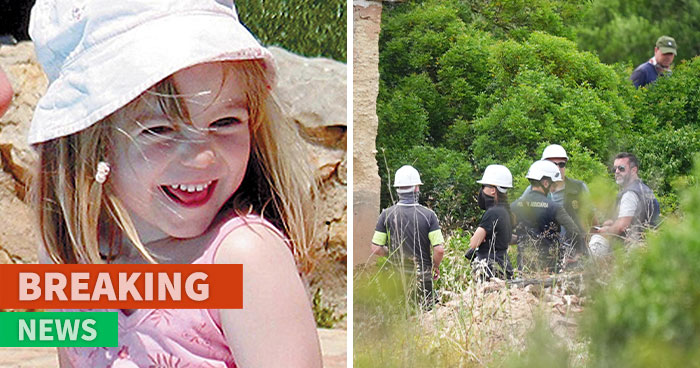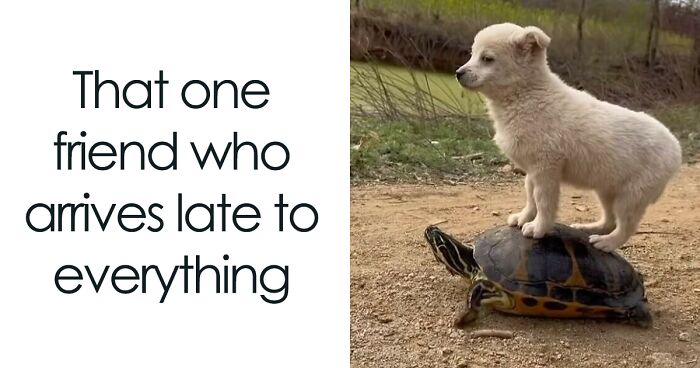
Woman Protects Her Dog From 2.5YO Nephew, Sister Demands An Apology
Interview With ExpertSome people argue that we don’t deserve dogs. And maybe it’s true. But I’m sure glad we get to share the earth with our furry four-legged companions. If you’re lucky, you get to live with one. If you were even luckier, you might have grown up around one or two. Kids and dogs can become the best of friends for life, provided parents create the right environment and nurture love and respect between them.
One woman was not impressed when she witnessed her nephew hitting the family pet on the head with a coaster. The elderly golden retriever was snoozing on the couch, minding his own business, when it happened. Since the toddler’s parents turned a blind eye, the woman decided to take matters into her own hands. But some netizens believe she should have dealt with it differently. Bored Panda spoke to two experts to get their opinions. One is Lisa Smith, Founder of The Peaceful Parent. The other is Nicole Ellis, a Certified Professional Dog Trainer and Pet Lifestyle Expert with Rover.
Golden retrievers are known as one of the most gentle dog breeds and make great family pets
Image credits: LightFieldStudios (not the actual photo)
When one person’s nephew hit their sleeping retriever on the head, she didn’t take it lying down
Image credits: Prostock-studio (not the actual photo)
Image source: Mmemm
Many wanted more details, and at one point, the aunt called someone out for false accusations
Toddlers aren’t aware that hitting a dog is wrong, a parenting expert weighs in
Image credits: Natali Hordiiuk (not the actual photo)
Toddlers are deeply curious creatures exploring cause and effect, parenting expert Lisa Smith tells Bored Panda during our chat. “They’re still building empathy, still learning that others have feelings,” she says. “If they see a dog flinch or yelp, they’re observing—but they don’t yet grasp pain from another’s point of view unless we help connect those dots.”
The founder of The Peaceful Parent says that sometimes it’s play. Sometimes it’s testing boundaries. Sometimes it’s an expression of overwhelm. “That’s why harsh reprimands aren’t effective,” she adds. “They shut down the learning.”
The expert says that she understands why the aunt is protective of the elderly dog. “Seeing a toddler hit the dog would’ve been jarring. But while her intention was to protect, her reaction likely felt scary and shaming to a young child,” said Smith. “Saying ‘how would you like it if I hit you in the face?’ is a phrase that reflects her anger more than her values—and it models exactly the kind of aggression she was trying to discourage. It also places blame before curiosity, which shuts down learning.”
Smith adds that it could have helped more if the aunt had grounded herself first… “Taken one breath, checked her tone—and then gently but firmly intervened. Something like: ‘Hey, sweetie, we don’t hit Lucky. That hurts him. He’s an old dog and needs gentle hands. Followed by showing the child how to pet softly, and then involving them in caring for the dog (e.g. bringing over his water bowl). That would have built empathy instead of fear.”
The expert adds that the aunt’s protectiveness was valid. But her tone and phrasing were misaligned with a toddler’s developmental stage. “So yes, the message needed to be delivered—but it needed to come from a place of calm teaching, not reactivity,” she explained.
A dog trainer and pet lifestyle expert gives their advice when it comes to toddler/dog interactions
Nicole Ellis is a Certified Professional Dog Trainer and Pet Lifestyle Expert with online pet marketplace, Rover. Ellis agrees that toddlers are still learning impulse control and empathy, which is why she says supervision is key. “Interrupt, redirect, and teach gently and consistently,” the expert told Bored Panda during an interview.
Ellis says if you spot your young child pulling a dog’s tail, or hitting them, you should immediately intervene. “Calmly remove the child from the situation—never punish the dog for reacting,” she said. Parents or caregivers should also model gentle interaction. “Say, We use gentle hands with dogs,’ and show how to softly pet the dog,” suggests the trainer.
She adds that it helps to practise with stuffed animals. “Role-play how to treat a dog kindly using toys, and praise the child when they’re gentle,” Ellis advises, adding that you should not blame the child. “Toddlers are exploring, not being malicious. Use this as a teachable moment.”
Finally, the expert advises that you praise the dog. “Reward your dog for remaining calm—but never force them to stay in a situation where they feel uncomfortable,” she said.
Scientists have found that dogs are magic. Just kidding. But here’s what they do say about getting your child a furry friend…
Image credits: Robert Eklund (not the actual photo)
Show me a kid who hasn’t asked for a puppy at least once in their life, and I’ll take that unwanted puppy! I know my own son has begged for a little furball at least five times—this year alone. But because we already have a dog, and I’m not yet ready to raise another baby, adopting a pup will have to wait… That said, I’ll probably cave sooner than I think.
There are major benefits that come with children growing up around animals. And they’re scientifically proven. For example, recent pediatric health studies foundthat kids who live with pets (especially dogs) during their first year of life actually have stronger immune systems than those who do not.
The researchers say that exposure to doggos could have “positively boosted the maturation of their immune system during infancy.” And when these children did get sick, they needed shorter courses of antibiotics than those who lived in “petless” homes.
Another study revealed that dogs can help prevent allergies in children. If the child’s parent suffers from respiratory allergies or asthma, the child is much less likely to develop similar issues if they have a dog in the house. But the experts say early exposure is key—meaning you should get that pup before your kid turns one.
Scientists also say that dogs are magic. Just kidding. But only sort of.
A Medical News Today study found that children in households with a dog had lower stress levels. While another revealed that exposure to dogs early in life could help to stave off childhood eczema. The Centers for Disease Control and Prevention found that “having a pet dog in the home was associated with a decreased probability of childhood anxiety.”
One teacher who took part in a study about classroom pets said, “Having pets is an INVALUABLE aid for helping the children gain pride, caring, and empathy for the needs of themselves and others.”
Smith agrees. “Caring for another life will require your child to become a more compassionate individual,” she told Bored Panda. “Feeding or walking them, at times they may have other things they would rather be doing, will mean that they have to step outside of themselves, and practice being selfless.”
Of course, caring for a pet teaches children life lessons, too. “Accomplishing small tasks (such as filling up their water dish) will help them feel like they are competent and will also give them a sense of accomplishment,” notes the Drake Center for Veterinary Care. And, it teaches them unconditional love.
Practice the “pat, pet, pause” method to keep your kids and pets safe
Image credits: Kateryna Hliznitsova (not the actual photo)
It’s one thing to wax lyrical about the benefits of having a dog around your child. But we can’t ignore the dangers. Like the risk of the child being bitten. Or the dog getting hurt. That’s why experts say it’s important for kids to learn to respect dogs both within and outside of the home.
The single best thing parents can do to improve the safety of dog-child interactions is to read your dog’s body language. That’s according to the Animal Humane Society (AHS).
“Practice this skill with your child by teaching them common dog cues in advance, and verbalizing what you’re seeing during supervised interactions,” reads the site. “You may be surprised to learn that a wagging tail does not equate to happiness, or that a dog staying very still could be indicating extreme discomfort.”
They also advise that you teach kids to ask for permission before engaging—and that includes asking the dog. “We call this pat, pet, pause whereby a child (or adult) pats their leg to invite a dog over for affection, softly pets the dog, then pauses to allow the dog to decide whether they’d like to receive more pets or move on,” explains AHS.
It’s important to always respect a dog’s boundaries. “Children should never invade a dog’s personal space, sit, lay or climb on a dog, or steal their toys or treats,” warns AHS. “Respect is key, and we want to avoid your dog developing any negative associations with your child (or worse, acting aggressively).”
Integrating supervised playtime between kids and pets can help promote a positive relationship while building trust.
“Does your canine love to play fetch? Show your kid how to roll or throw a ball or toy for your dog,” suggests AHS. “Is your pup food motivated? Help your child toss treats or offer your dog a few licks of peanut butter from a spoon.”
The Society’s experts say the more your dog associates these positive experiences with your child, the more likely their relationship will bloom.
But AHS warns that you should never leave your child unattended with the family dog. “When you’re not able to actively observe their interactions, keep kids and dogs separated with the use of baby gates or room dividers, especially when your kids are young and still learning how to share the same space as their furry friend,” notes the site.
People had mixed reactions, with some warning the situation could have been worse
Poll Question
Thanks! Check out the results:
The child is almost 3... when are we supposed to START teaching them "you don't hit animals/other children"? Wait until they're exactly 3 years old? (Re: the people who are upset at OP.) I'm fairly certain that children younger than 3 years old can have the foundations of "don't hit animals/other children/other people" laid down even if they cannot understand the "why" yet. We had a lovely Great Dane when I was a baby/toddler who was at my side every moment of my first few years. I - like any child - had learned zero social "rules" and am told I bonked her a few times with sticks (which she took in stride) and one time I apparently put quite a few clothespins on her ears and flews. I have a vague memory of my dad "explaining" to me that we do not hurt animals (no clue of his actual words, just remember the "feeling" of the talk.) He was calm and did not yell or hit me. I think young children absolutely CAN be taught not to hit animals/other people.
Totally agree. I also don't see what's wrong with "how would you like it"... teaching them to think the consequences through.
Load More Replies...If you don't teach your child right from wrong, someone else might. My husband points out to our son, I would rather you learn a lesson on how to modify innapropriate behavior by someone who loves you and cares and will do so in an appropriate manner. Because it's not going to be nice if someone who doesn't care replies in kind.
Agree , whilst mine where taught very early on cos they were bought up with dogs in the house , if they had done this else where n the owner did this I’d be fine cos the other outcome don’t bear thinking about does it
Load More Replies...The child is almost 3... when are we supposed to START teaching them "you don't hit animals/other children"? Wait until they're exactly 3 years old? (Re: the people who are upset at OP.) I'm fairly certain that children younger than 3 years old can have the foundations of "don't hit animals/other children/other people" laid down even if they cannot understand the "why" yet. We had a lovely Great Dane when I was a baby/toddler who was at my side every moment of my first few years. I - like any child - had learned zero social "rules" and am told I bonked her a few times with sticks (which she took in stride) and one time I apparently put quite a few clothespins on her ears and flews. I have a vague memory of my dad "explaining" to me that we do not hurt animals (no clue of his actual words, just remember the "feeling" of the talk.) He was calm and did not yell or hit me. I think young children absolutely CAN be taught not to hit animals/other people.
Totally agree. I also don't see what's wrong with "how would you like it"... teaching them to think the consequences through.
Load More Replies...If you don't teach your child right from wrong, someone else might. My husband points out to our son, I would rather you learn a lesson on how to modify innapropriate behavior by someone who loves you and cares and will do so in an appropriate manner. Because it's not going to be nice if someone who doesn't care replies in kind.
Agree , whilst mine where taught very early on cos they were bought up with dogs in the house , if they had done this else where n the owner did this I’d be fine cos the other outcome don’t bear thinking about does it
Load More Replies...
 Dark Mode
Dark Mode 

 No fees, cancel anytime
No fees, cancel anytime 

























































































43
42